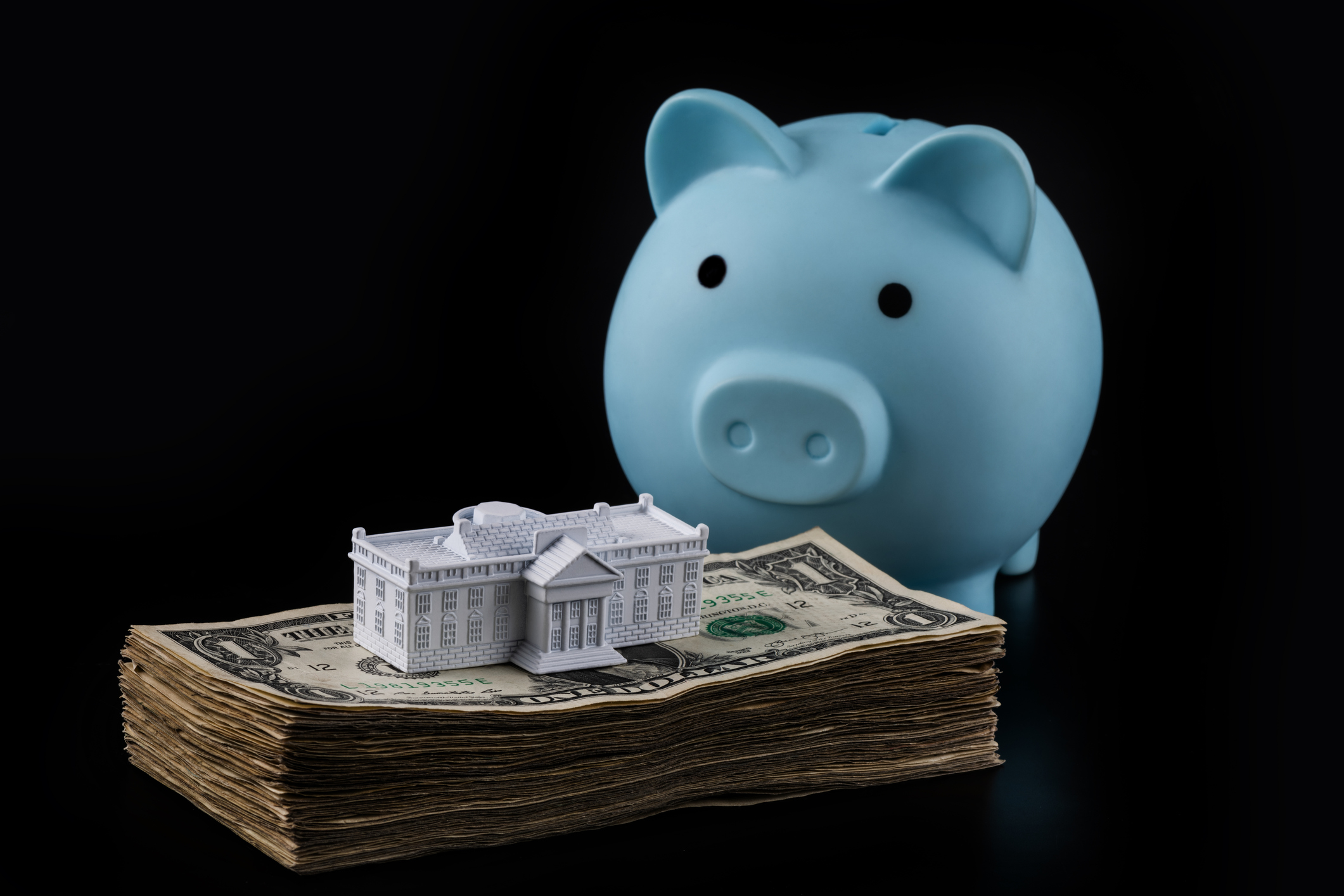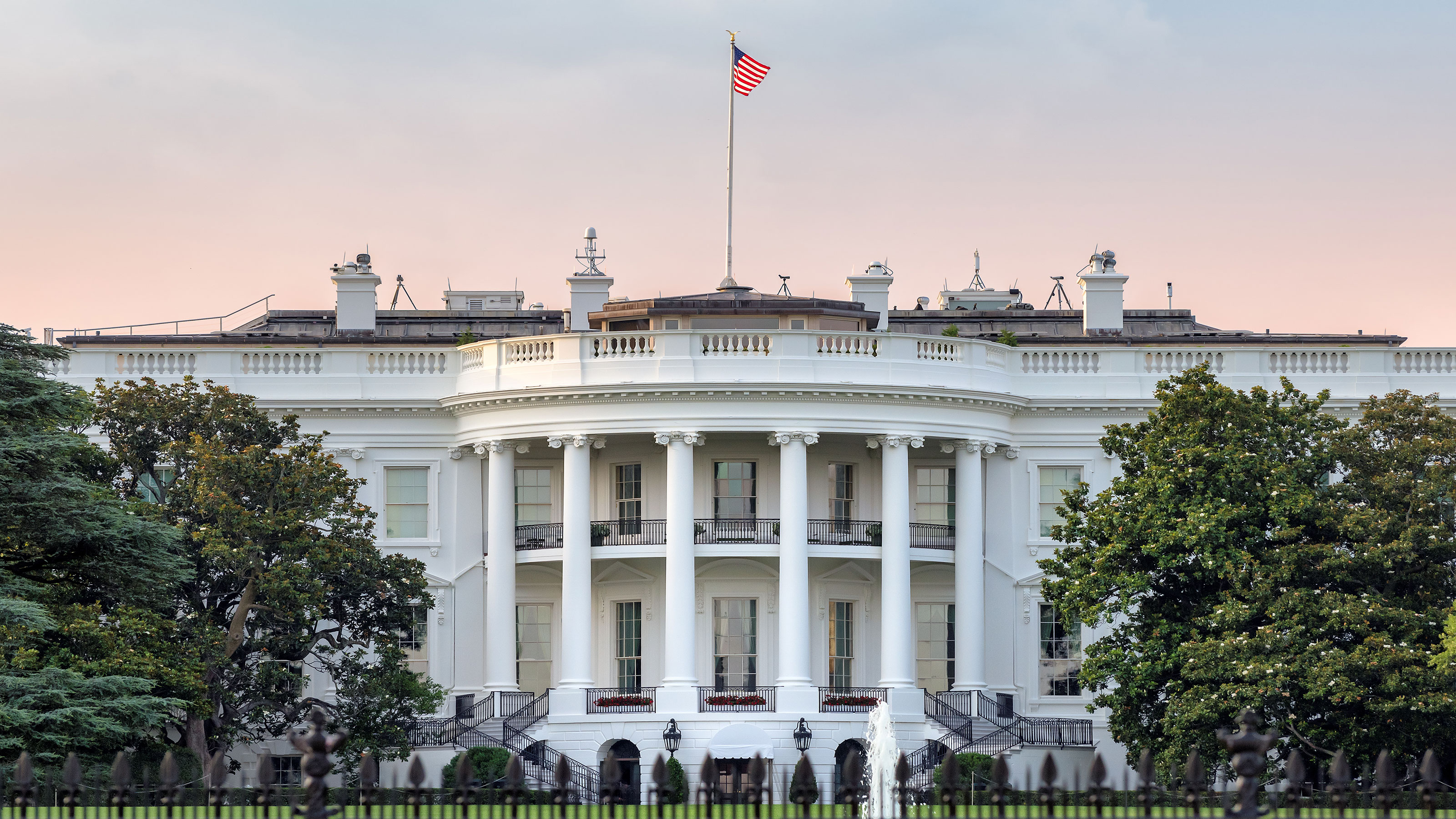
Inflation.
It killed the presidencies of Jimmy Carter and Gerald Ford, relegating both to the status of a one-term president. Broad dissatisfaction with post-pandemic inflation weighed heavily on President Joe Biden's popularity. It may have been one of the factors in his decision not to seek a second term.
In the immediate aftermath of former President Donald Trump's victory over Vice President Kamala Harris, it appears that inflation and its impact on households over the last few years was the hot-button issue in this year's campaign for the White House.
Although inflation has cooled, prices are still higher than we've been used to, and that's caused a lot of consternation.
"Groceries are 25% higher and people are blaming you and Joe Biden for that. Are they wrong?" Bill Whitaker of CBS News asked Harris on a "60 Minutes" segment that aired October 7. Similarly, during the September debate, Trump blamed Biden for "the worst inflation we've ever had," where "people can't go out and buy cereal, bacon or eggs or anything else."
Trump has said his economic plans include increasing domestic oil and gas production to lower energy costs and increasing tariffs, although, tariffs can increase prices of products and energy prices "don't respond quickly to executive orders," per the Wall Street Journal.
Alongside calls to end taxes on Social Security benefits and taxes on overtime pay, as well as limits on other taxes, Trump's policy ideas could increase national debt by $7.5 trillion through 2035, a Committee for a Responsible Federal Budget analysis found.
But is inflation really a president's fault?
And what, if anything, can a commander in chief do to fix it?
The relationship between inflation and the person in the White House is complex because inflation itself is complex. And, while the president cannot control inflation, per se, they can certainly influence it.
So, let's break it down, starting with what drives inflation.
Inflation is the rate at which prices rise over time. Or, put differently, it measures how much your money is worth relative to the goods and services you can buy with it.
The reasons for inflation are varied, but ultimately, they all come down to basic supply and demand. That's how all markets work. When demand is higher than supply, prices rise to compensate. Likewise, when supply outpaces demand, prices fall.
Both aggregate supply and aggregate demand can be influenced by government policy, though not necessarily by the president.
Who controls inflation in the US?
Let's take a look at some of the ways the government can influence the economy, starting with the Federal Reserve's role.
The Fed regulates the supply of dollars and the speed with which they change hands in two primary ways. The first is by setting short-term interest rates and the second is by buying and selling bonds on the open market (i.e., quantitative easing).
When the Fed buys bonds, it essentially creates new dollars. And when it sells bonds, it takes dollars out of circulation. Low interest rates encourage borrowing and spending, which is inflationary. For most of the past two decades, the Fed has run excessively loose monetary policy, keeping interest rates pegged extremely low for years at a time and essentially flooding the economy with trillions of new dollars via its bond buying.
While the Fed has been hawkish for the past two years, that doesn't undo two decades of dovishness. The Fed's loose policy is a major contributing factor to the inflation we continue to experience today.
This is not directly under the control of the president, as the Fed is designed to operate independently. The true extent of the Fed's independence is debatable, of course, and it is assumed that the president has at least a degree of informal influence.
However, the president does play a major role in selecting the people who run the Federal Reserve. The seven members of the Fed's Board of Governors are nominated by the president and confirmed by the Senate for terms of 14 years. The chair, a position currently held by Jerome Powell, is nominated by the president and serves a term of four years.
Powell, for what it's worth, was initially appointed to the Fed governing board by President Barack Obama, before being nominated by Trump for the chair position. In 2021, Biden reappointed Powell to the role. While there have been rumblings about what Trump might do, he has said he would let Powell serve out his term, which ends May 2026.
But, at least concerning the day-to-day operations of the Fed, the president doesn't have a lot of say.
Inflation can be impacted by policy

The House of Representatives controls the purse strings, though they don't do so in a vacuum. The president goes to Congress with a budget and then the horse-trading begins. Eventually, the House and Senate agree on funding bills and the president signs them into law.
This is an area where you could argue the president is more directly responsible for inflation. Deficit spending — borrowing from the future to pay for expenses today — creates artificial demand and is inflationary… particularly when the budget deficits are as large as they are today at over 6% of gross domestic product (GDP).
Furthermore, when the government borrows, it pulls capital out of the productive private sector. That extra dollar needed to fund the government's expenses is a dollar not being invested in a new factory, chip fabrication plant or office building. It creates demand without also creating supply, which is inflationary.
Trade policy also plays a role. Competitive free trade lowers costs and is inherently anti-inflationary. It's no coincidence that the great decline in inflation between 1980 and 2020 happened at a time when free trade agreements were en vogue and tariffs were in decline.
Tariffs make imports more expensive and discourage free trade. This is inflationary.
The president does not unilaterally set trade policy. While the law gives the president a large degree of leeway in setting tariffs, it's a collective effort along with Congress. But it is safe to say that trade policy is an area in which presidents can and do influence inflation.
What impacts inflation outside of politics?
Not all inflation drivers are political. Demographics play a role too, and some of our inflation today is driven by the labor shortage. No president can snap his fingers and make fully-trained new workers magically appear out of the ether.
Supply disruptions play a role too, as we saw in the pandemic.
Likewise, the prices of energy and commodities are determined by global factors. Yes, a president can make it easier or harder to drill for domestic crude oil, but a move by OPEC to increase or decrease production will generally take precedence over decisions made in Washington.
All of this is to say that the president's actions absolutely have an impact on inflation. A president who balanced the budget and encouraged free trade would likely preside over a country with lower inflation than a president who ran chronic budget deficits and raised tariffs.
But it's also not within the president's power alone to control inflation and it's not realistic to expect it.
.jpg?w=600)






